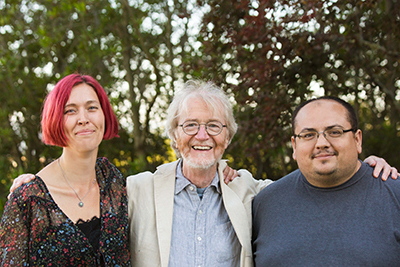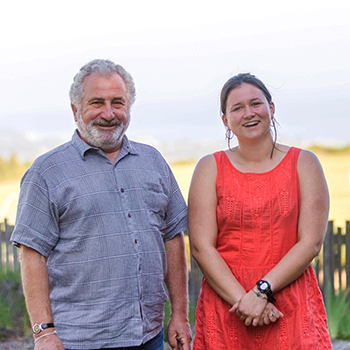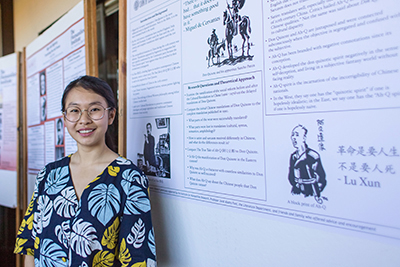Campus News
Linguistics professor Jim McCloskey receives Dizikes Award for teaching in Humanities
Linguistics professor Jim McCloskey was presented with the John Dizikes Teaching Award in Humanities at the Humanities Division’s 2018 Spring Awards celebration held at the Cowell Provost House.




Linguistics professor Jim McCloskey was presented with the John Dizikes Teaching Award in Humanities at the Humanities Division’s 2018 Spring Awards celebration held at the Cowell Provost House.
Established in 2002, the annual award is named in honor of emeritus professor John Dizikes, one of UC Santa Cruz’s founding faculty members. It is designed to celebrate the Humanities faculty’s commitment to excellence in teaching and its transformative impact on undergraduate students.
In addition to being honored with a check for $3,000, the faculty winner is also entitled to select an undergraduate student to receive a $3,000 scholarship. McCloskey chose to split the prize between two senior graduating students in linguistics—Clara McMahan and Luis Hurtado.
“Teaching is often painful,” McCloskey observed, as he accepted the award on the eve of his retirement. “There is nothing like the pain you feel at the end of those days when it hasn’t gone well in the classroom…But sometimes (the best times) it does work in the room–a real exchange takes place and questions are asked, and a light is lit, and there is excitement around ideas newly experienced.
“And it’s best when it’s improvised or unplanned and a student will turn the whole proceeding around by offering, nervously, a question or a suggestion–the one you wanted. Or maybe didn’t. Which you can then grasp and make something of. And in those exchanges the benefits are even, mutual, and reciprocal.”
“There are large areas of my own field which I would never have come to properly understand if I hadn’t had to, time after time, find new ways to frame them for students who have no reason to react in any other way than with boredom and skepticism,” he added. “There is nothing like the thrill of getting past that barrier. And you can’t make exchanges like that happen unless you take some chances, open yourself a little, and let bonds of empathy form between you and people with whom you share not very much at all (at least in my own case) of experience or perspective. Which is really why you want to keep doing it and why you’re so sad that it has to stop.”
Humanities Dean Tyler Stovall hosted the event, noting that the division was presenting two new awards this year: The David A. Kadish Humanities Scholarship Award, which recognizes an undergraduate student with financial need who displays a strong interest in the study of the humanities; and The Idstrom Family Prize for Creative Writing, established by John Idstrom to reward extraordinary accomplishment in creative writing.
The awards celebration also included opening remarks by UC Santa Cruz campus provost and executive vice chancellor Marlene Tromp, who stressed the importance of the humanities in our rapidly changing world.
“As we watch the #MeToo movement challenge structures of oppression in our culture, as we look at the changing political landscape and see the way we have so many people who lack human understanding, it reminds us how important it is to have humanists asking the questions that humanists ask,” said Tromp.
“We’re the ones who ask those questions. We’re the ones who challenge those structures. We’re the ones who think the thoughts that help shift the paradigms.”